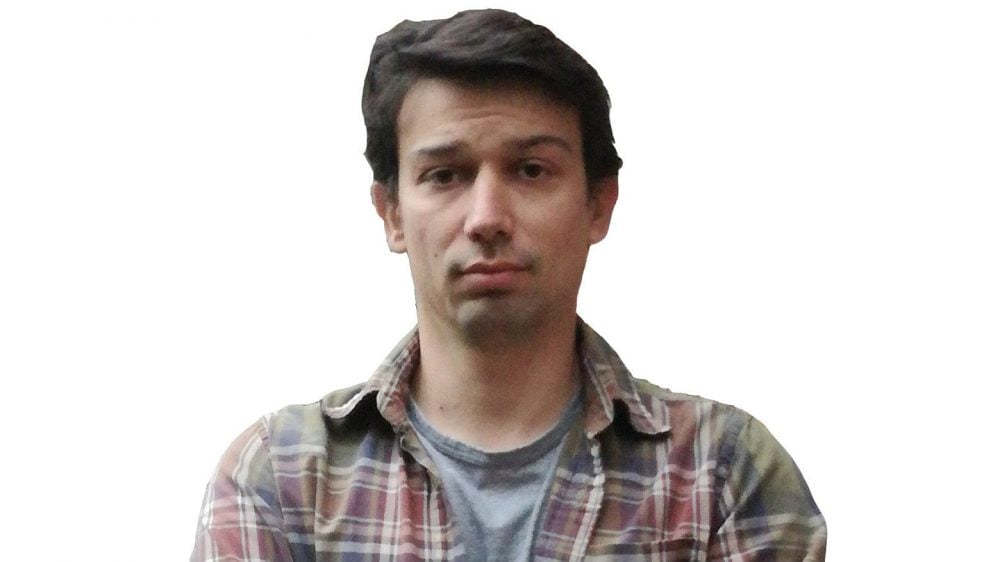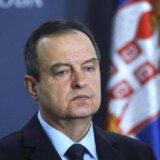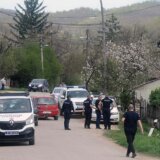
Ko je u pravu, Telekom ili SBB?
Onaj ko je pratio seriju o ukidanju kanala Junajted grupe na Telekomovoj platformi Supernova, iz svega rečenog, a rečeno je mnogo toga, teško da je mogao da izvede pouzdan zaključak. A tek onaj ko se uključio na pola priče, teško da išta može da „pohvata“.
Zato kratak uvod. Telekom Srbija nudi tv signal korisnicima na dva načina – preko svoje sopstvene mreže i preko grupe kablovskih operatera koje je pokupovao mahom prošle godine (Kopernikus, Radijus vektor itd), a koje sada reklamira pod objedinjenim brendom Supernova. To znači da neko danas može da bude korisnik Telekoma, a može i Supernove. Osim što je distributer televizijskih programa, Telekom je takođe i vlasnik raznih kanala, među kojima je najznačajnija Arena sport, a uz to proizvodi i drugi sadržaj (serije i tome slično) koji zatim nudi korisnicima preko svojih kanala. Telekom je akcionarsko društvo u državnom vlasništvu.
Poslovni arhineprijatelj Telekoma je SBB. SBB je distributer tv programa kao i operateri pod brendom Supernova. Međutim, SBB je deo Junajted grupe, regionalne kompanije koja kao i Telekom ima svoje tv kanale od kojih su najbitniji N1 i Sport klub. Ovi kanali se emituju na mreži SBB-a. Junajted grupa je u većinskom vlasništvu investicionog fonda BC partners iz Velike Britanije. Manjinski udeo u Junajtedu ima Dragan Šolak, osnivač SBB-a.
Priča se sad komplikuje. N1 je kritički orjentisana, nezavisna televizija, koja je priličan trn u oku predsedniku Aleksandru Vučiću. N1 se osim na SBB-u donedavno mogla gledati i na mrežama operatera koje je pokupovao državni Telekom. Na tim kanalima se mogao gledati i Sport klub, pa su korisnici nekih od tih manjih operatera bili među retkima koji su recimo imali i Arenu i Sport klub (podrazumeva se da Telekom i Junajted jedan drugom ne prodaju svoje kanale). Kad je Telekom kupio ove operatere, a stari ugovor sa Junajtedom sada istekao, signal N1 televizije i Sport kluba je isključen. Time je oko 200.000 ljudi sa Supernove ostalo bez ovih kanala.
Usledilo je medijsko bombardovanje sa obe strane. Jedna strana je drugu optuživala za ukidanje signala, Telekom je osumnjičen da pred izbore gasi signal N1 da bi pomogao Vučiću, Telekom je uzvratio da u SBB-u lažu, Junajted je dostavio javnu ponudu Telekomu da kupi pravo na emitovanje N1, Telekom je odgovorio da im je Junajted tražio nezakonitu podelu teritorije, pokrenuta je kampanja #DaSeVidiN1, Telekom je u tabloidima objavio deo poverljive prepiske sa Junajtedom, Junajted im je uzvratio da je to ispod svakog nivoa, Telekom je zahtevao svih 17 kanala Junajteda, Junajted ih podsetio da čekaju na odgovor za N1, Telekom tvrdi da ponudu nisu dobili, i tako dalje.
Možemo li razaznati suštinu? Poslovno gledano, Telekomu je po svaku cenu stalo da se dokopa Sport kluba. Taj kanal je daleko vredniji od njihove Arene i jedan od glavnih razloga zbog kojih se ljudi koji imaju izbora, odlučuju da pređu na SBB. Junajtedu je, jasno, vrlo stalo da ovu prevagu zadrži. U ovom delu imamo komercijalnu borbu.
S druge strane je politički aspekt. N1 televizija je jedini relevantan televizijski izvor nezavisnih vesti u Srbiji. Kada je Telekom kupio Kopernikus, a dotadašnji vlasnik Kopernikusa iskoristio taj novac da kupi tv Prvu i O2, sa tih televizija su nestali svi kritički sadržaji. Dakle, jasno je da vlast ne uzmiče od upotrebe Telekoma u političke svrhe. Ponuda Junajteda da Telekom preuzme N1 najbolje ilustruje ovaj aspekt. Telekom jednostavno ne sme da prihvati ovu ponudu. Kako bi je objasnio vlastima?
S druge strane, ako bi se s SBB-om dogovorio o distribuciji svih 17 kanala, među njima bi morao da se nađe i N1, jer bi njegovo izostavljanje toliko upadljivo štrčalo da vlast to sebi ne bi smela da dozvoli. Ali, da li to odgovara SBB-u, koji ima veliku prednost u kvalitetu svojih kanala. U zbiru, najlakše rešenje je da se ne postigne dogovor i da se strane međusobno izoptužuju za takav rezultat. Ali, to je za Telekom skupo rešenje, mada je ova kompanija pokazala da joj skupa rešenja nisu problem.
U pozadini priče ima još mnogo detalja. Od nelegalnog širenja mreže jednog operatora mimo volje stanara, do intervencije državnih organa da se drugom operatoru zabrani postavljanje kablova. Ali za to sve, u ovom tekstu više nema mesta.
The Supernova explosion
Who is right, Telekom or SBB?
For anyone who has followed a soap opera that is the story of shutting down United Group’s channels on Telekom’s Supernova platform, from all that’s been said, and a lot has been said, drawing a reliable conclusion would be a tall order. And those who tuned into this story halfway, are likely to get nothing.
So, a short introduction is needed. Telekom Serbia offers TV signal to consumers in two ways – through its own network and through a group of cable providers it acquired mostly during the last year (Kopernikus, Radijus Vektor etc.), which it now advertises under the umbrella brand Supernova. That means that today a person can be a Telekom user, but also a Supernova user. In addition to being a TV program distributor, Telekom also owns various channels, Arena sport being the most important, while also producing other content (TV serials and the like) to offer to its users on its channels. Telekom is a joint stock company owned by the state.
Telekom’s business archenemy is SBB. SBB is a television program distributor, just like the Supernova brand operators. However, SBB is the part of the United Group, a regional company which, like Telekom, has its own TV channels, of which N1 and Sport Klub are the most important. These channels are broadcast on SBB’s network. Majority shareholder in United Group is the investment fund BC Partners from the United Kingdom. Dragan Šolak, the SBB founder, holds a minority stake in United.
The story is now getting complicated. N1 is a critically oriented, independent television and quite a thorn in the side of President Aleksandar Vučić. Until recently, apart from SBB, N1 could also be watched on the networks of the providers bought up by the state Telekom. One could also watch Sport Klub on those platforms, so the users of some of these smaller providers were among the few who were able to enjoy both the Arena and the Sport Klub channels (it goes without saying that Telekom and the United Group do not license their channels to each other). After Telekom acquired these providers, and now when the old contract with the United expired, N1 and Sport Klub’s signal was shut off. This left some 200,000 people on Supernova without these channels.
What followed was the media bombing from both sides. One side accused the other of shutting off the channels, Telekom was put under suspicion of having turned off N1 signal in order to help Vučić in the light of the incoming elections, Telekom shot back that SBB lied, the United sent a public offer to Telekom to buy rights to broadcast N1, Telekom responded by claiming that the United asked them to agree to illegal division of the territory; a campaign #DaSeVidiN1 (#LetN1BeSeen) was launched, Telekom leaked parts of the confidential correspondence with the United to the tabloids, the United hit back that such a move was beneath anyone, Telekom demanded to get all 17 channels of the United, the United reminded them it was still waiting for the answer to the N1 offer, Telekom claimed the offer had never come, etc.
Can we discern the essence? Businesswise, Telekom wants to get Sport Klub at any cost. That channel is far more valuable than their Arena and it’s one of the main reasons why people who have the choice, decide to switch to SBB. Clearly, the United would like very much to keep this leverage. What we have here so far is a commercial battle.
On the other hand, there is the political aspect of the situation. N1 TV is the only relevant source of independent television news in Serbia. When Telekom bought Kopernikus, and the former owner of Kopernikus used the money to buy Prva and O2 televisions, all criticism of the government vanished from those stations. So it is clear that the authorities do not hesitate to use Telekom for political purposes. The United’s offer to Telekom to license N1 illustrates this aspect the best. Telekom simply must not accept this offer. How would it explain it to the government?
On the other hand, should it make a deal with SBB to distribute all 17 channels, the package would have to include N1, as leaving it out would so glaringly stand out that the government could not afford to allow it to happen. But, does that suit SBB, the company that has a large advantage in the quality of its channels? Taken all into account, the easiest solution would be to fail to reach agreement, with both sides accusing each other of the result. But, that is an expensive solution for Telekom, although this company has shown that it has no problems with expensive solutions.
There are many more details in the background of this story. Starting from the illegal expansion of the network of one operator that goes against the wishes of the building’s occupants, up to the state authorities’ intervention to forbid the other operator to set up its cables. But there is no more space for all of that in this text.
Pratite nas na našoj Facebook i Instagram stranici, ali i na Twitter nalogu. Pretplatite se na PDF izdanje lista Danas.




